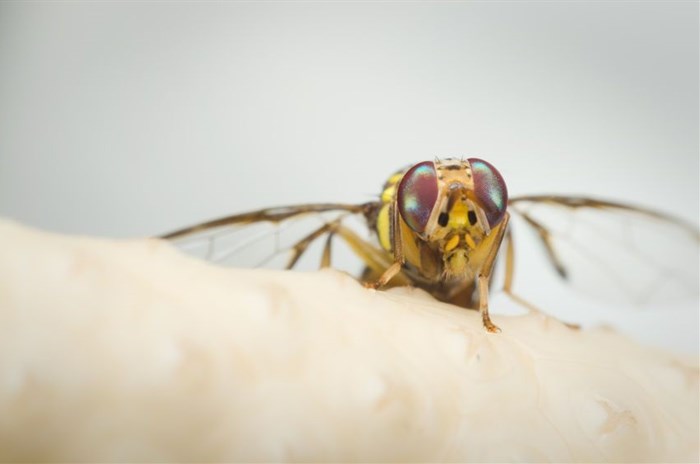
DAFF received reports between the last week of February and April 2018, respectively about several detections of specimens of the pest – these detections were reported at regular intervals between Groblershoop and Upington, including Grootdrink, Karos, Keimoes, Augrabies as well as Kakamas, areas alongside or close to the Orange River.
With citrus and grapes being the main fruit produced in the affected area, these detections pose a serious threat to the production of these fruit crops as they are also preferred hosts of the Oriental Fruit Fly. This pest can result in food insecurity, yield reduction, job losses, market restrictions, high production and post-harvest costs, if not effectively controlled.
The department together with other affected role players is implementing phytosanitary measures to contain the spread of the pest in the affected area.
The affected communities and role-players are requested to cooperate with officials of the department and industry bodies who will be on the ground placing fruit fly traps and/ or Male Annihilation (MAT) blocks/protein bait stations to control the pest. The pest requires implementation of effective orchard/field sanitation and regulation/management of the movement of host material from quarantine (infested) areas to non-quarantine (non-infested) areas.
In terms of the phytosanitary measures, infested areas are quarantined in terms of the Agricultural Pests Act, 1983 (Act No. 36 of 1983), Control Measures R.110 of 27 January 1984 as amended. The affected parties will be served with official orders to restrict movement of host materials from affected areas to non-affected areas; delimiting surveys as well as actions to eradicate the pest will be implemented.
Members of the public are advised to not remove the fruit-fly trapping buckets placed along roadsides in production areas and other public areas. Their presence (trapping buckets) is essential to the national exotic fruit fly surveillance programme. People in all provinces producing the host crops of this pest are advised to stay alert and practice the stipulated control measures.
All traders and transporters of fruit and vegetables that are hosts of the Oriental fruit fly must apply to the department for a removal permit if fruit from infested areas is removed or destined to be sold in the areas that are free from the Oriental Fruit Fly. International travellers are advised to avoid the illegal importation of agricultural commodities into South Africa, because this may lead to the introduction of new pests and diseases, which are expensive and difficult to manage.